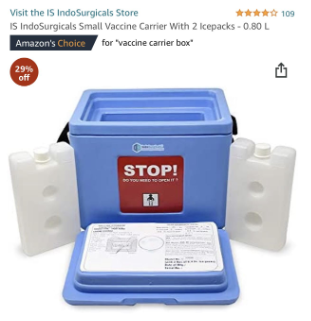By: Dr. Fasika Teferra
I had always loved giving back to my community. Volunteering and community service are what I had done ever since high school, and I loved making someone smile by even the smallest action. However, I had always seen myself as the benefactor and the people I served as the beneficiaries. Even though I loved seeing my impact made, we had very little in common, and the relationship never got past friendship. Although I loved the work I did, it was not something that kept me up at night or dedicated long hours. Working on improving the quality of life for IBD patients in Ethiopia however, was a totally different journey. Besides dedicating more than three years continuously, I am constantly thinking of new ideas and ways to do things differently.
During my final years of medical school, I hardly had any time for my own medical checkup let alone organize an in-person event. So, I decided that until I finish medical school, I would support one or two patients via phone.
I have never thought of myself as an innovator or problem solver. I don’t think people are born leaders, but I also have never understood how leaders were actually made. I remember the exact moment when I knew I had to step up and create an IBD space for people to get support but no idea how I would do it. I was 24 at the time, 4th year in medical school, and barely any networking experience. So, I tried to reach out to some gastroenterologists to tell them I wanted to do something to help other IBD patients. At the time, I myself did not know exactly what I wanted to do until one doctor articulated the word support group. With the realization that my ideas have one collective name, I turned to Google to see how other people lead support groups. I saw a lot of in-person meetings as part of activities which was discouraging to me. During my final years of medical school, I hardly had any time for my own medical checkup let alone organize an in-person event. So, I decided that until I finish medical school, I would support one or two patients via phone, and I notified my interest to a gastroenterologist in one of the biggest teaching hospitals in Ethiopia.
Fast forward to November 2019 when I attended a conference titled Women Leaders in Global Health. The conference came to my attention as I was googling people and projects related to what I wanted to do. It was also so convenient as it happened in Kigali, Rwanda where there were many Ethiopians living there that I had known. With the reasonable plane ticket price and securing a free place to stay, I somehow managed to get the weekend off and traveled for the conference. I remember feeling at home during the conference. There were so many experienced women in the global health field with so many accomplishments, and even though there was a gigantic gap in age and knowledge between me and most of the attendees, I felt like I belonged. I had never been exposed to such a variety of experts, and I soaked it all in. By the end of the conference, I had a clear vision of what I wanted to do.
I was confident enough in my vision, and with the diverse board of directors, I pulled in all the technical knowledge I would need to succeed.
I went back home, and in just over a month’s time, Crohn’s & Colitis Ethiopia Charitable Organization was established as a local nonprofit in Ethiopia with a vision of finding a cure for Inflammatory Bowel Diseases and a mission to improve the quality of life for patients living with IBD in Ethiopia through awareness creation, community support and much more. I had no background in Civic Society Organization leadership or anything in that lane, but I was confident enough in my vision, and with the diverse board of directors, I pulled in all the technical knowledge I would need to succeed. I am part of the community I serve now, and I intend to make my own health as well as others as optimal as I can. Whether it is in the nonprofit sector or the for-profit realm, I have learned that as long as the passion comes from the heart, anyone can make a difference in their surroundings. I have learned that there are smart ways to acquire all the years of knowledge I would need to lead properly, and that I don’t have to learn everything and know everything before I can take action. If you have an idea you think your community can benefit from, don’t doubt yourself and start with a small step. Rarely do great things happen overnight, but with consistency and persistence, anything is possible.




























